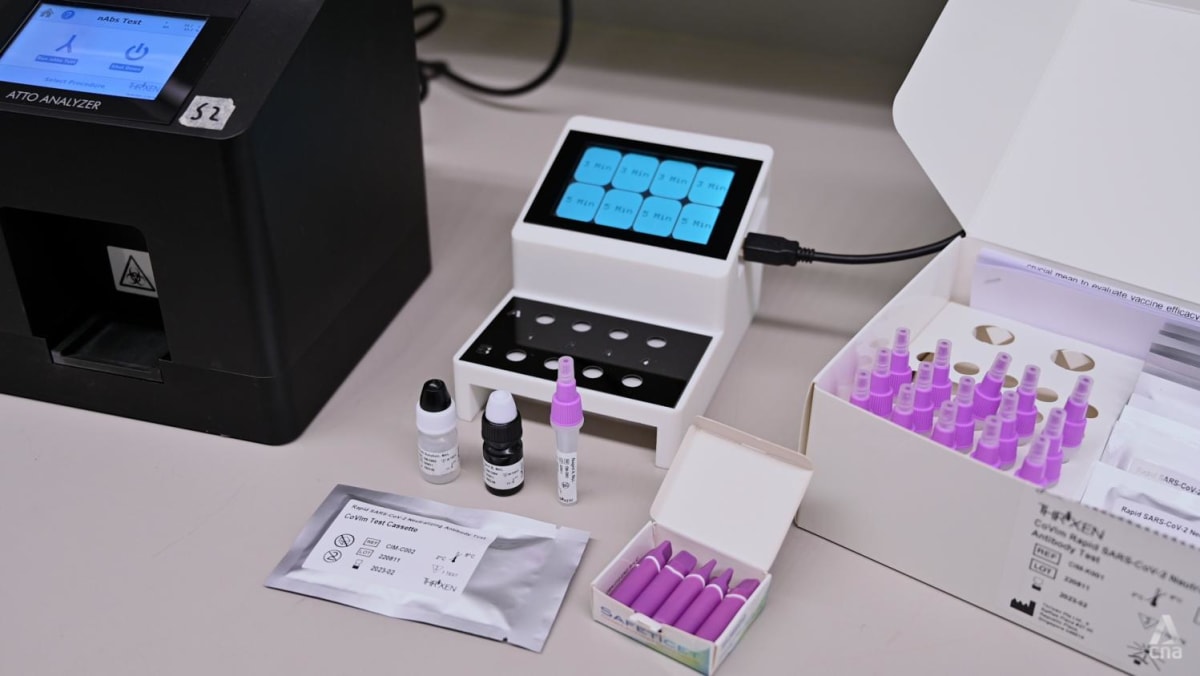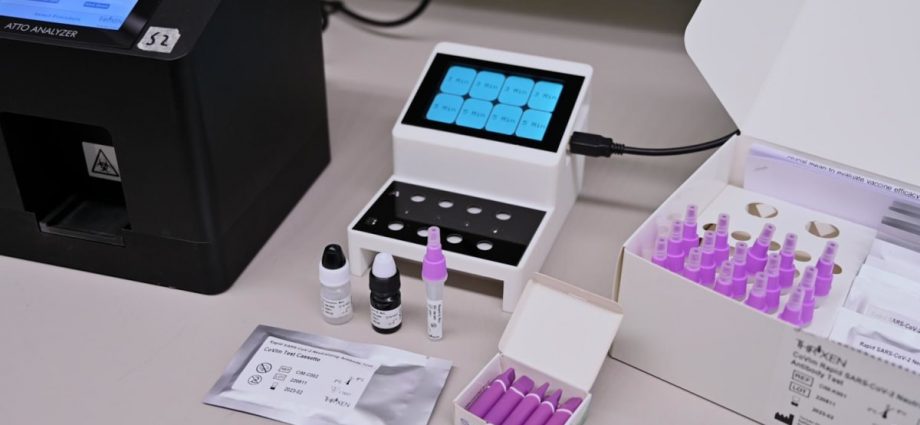
To compare the current tests with the new 10-minute kit, my colleague and I also went to a clinic to take a serology test.
I had not tested positive for COVID-19 before this, and my blood sample from the clinic’s test came back negative for the N-protein. My colleague, who recovered recently from COVID-19, tested positive for the N-protein, indicating a past infection.
“There are some people with weak immune systems who have negative serology test results despite being vaccinated or even after getting infected,” said Dr Tambyah.
Most people would test positive for the antibodies around one to three weeks after the onset of disease, experts said.
“You could do the test any time after that but the significance and interpretation is tricky,” said Professor Dale Fisher, senior consultant at the Division of Infectious Diseases at the National University Hospital (NUH).
For example, the amount of time that antibodies are detectable varies from individual to individual “a lot”, he added.
Some people may develop antibodies later, or at very low levels, said Professor Laurent Rénia from NTU’s Lee Kong Chian School of Medicine. In other patients, antibody production may wane fast, as quickly as one to three months.
Most of the tests currently available detect the presence of COVID-19 antibodies, not their levels. Others can detect the levels, which can give an indication of how vaccination was effective in inducing antibodies, said Prof Rénia.
“However, it cannot predict with certainty that people will be protected,” he added.
“It is important to understand the implications of the results so it is good to discuss with your doctor as the levels do not correlate perfectly with immunity to COVID-19. Some people with high antibody levels can still get infected,” said Dr Tambyah.
Who could benefit from taking a COVID-19 serology test? Those who want to know if they have been infected recently, experts said. Those who are immunocompromised may also benefit from finding out if the vaccine has helped them to develop antibodies as it is supposed to.
“If a few weeks after vaccination there are no antibodies, then there are treatments available such as being given effective antibodies by injection since that person can make them themselves,” said Prof Fisher.
“We can use these treatments in early disease or as prevention in people who cannot make their own antibodies, and therefore have a negative serology test.”
While the serology results are not definitive, good levels of antibodies after a second booster jab may provide some reassurance, Dr Tambyah said.
Low levels may raise concerns among those with organ transplants or other immune-suppressing conditions, he added.

